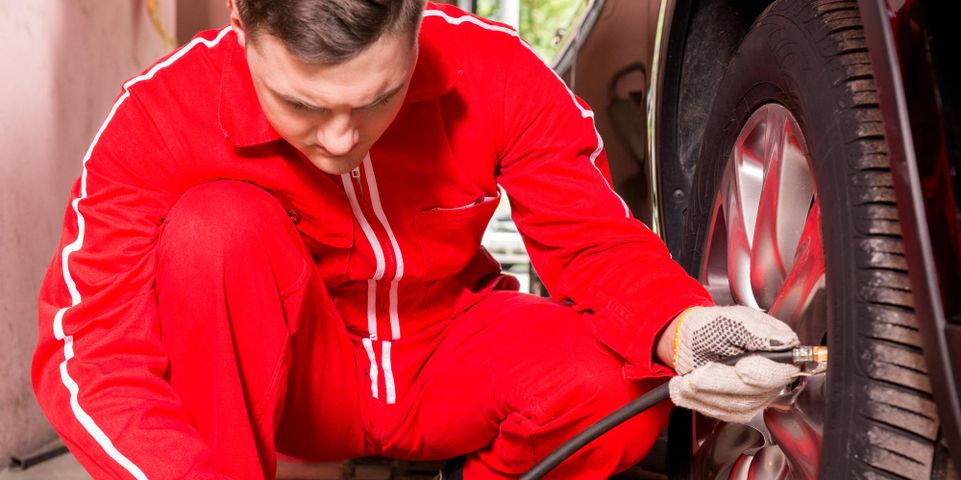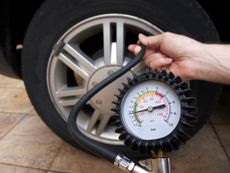
Most of the time, drivers don’t pay much attention to their tires until they go flat. However, because they’re crucial to your safety, it’s important to maintain them. Low tire pressure directly affects the fuel-efficiency, as well as how the car handles. It can also lead to accidents and an unexpected trip to a car repair shop. Here’s a guide to maintaining your tires.
Why Is It Important to Change Your Tires When They’re Worn?
Over time, the tire rubber will wear thin, and the tread will diminish, making them lose pressure quickly. These factors can also lead to unexpected blowouts on the road. Also, if a tire isn’t holding air pressure, it can lead to accidents, as it will be harder to steer and handle the car. In some cases, tires won’t hold pressure due to a small hole or a leak from the valve stem. If you encounter these issues, have a car repair specialist repair or replace your tires right away.
How Do You Check the Tire Pressure?
 Checking the tire pressure is simple and should be done monthly using a gauge. Look at the manufacturer’s recommendations in the owner’s manual for the correct PSI (pounds per square inch) for the tires. Next, use a gauge to measure each tire, writing down the numbers so you can compare when you’re done. This is best performed on “cold” tires, so don’t drive for more than 20 minutes before doing this.
Checking the tire pressure is simple and should be done monthly using a gauge. Look at the manufacturer’s recommendations in the owner’s manual for the correct PSI (pounds per square inch) for the tires. Next, use a gauge to measure each tire, writing down the numbers so you can compare when you’re done. This is best performed on “cold” tires, so don’t drive for more than 20 minutes before doing this.
How Do You Fill the Tires?
You can fill up your tires at most gas stations by using an air compressor. To begin, remove the valve cap and affix the hose to the valve. Add air a little bit at a time and use your tire pressure gauge to recheck the pressure as you fill up. Make sure that all the tires have the same PSI. Keep in mind that after driving, your tire pressure may appear 2-3 PSI higher.
When you need to replace your tires, contact Whitesell Collision in Augusta County, VA. These car repair experts have been helping people upgrade, repair, and maintain their vehicles since 1949. Check out their website to read customer testimonials, or call (540) 943-3361 to schedule an appointment with a car repair specialist.
About the Business
(68 reviews)
Have a question? Ask the experts!
Send your question

